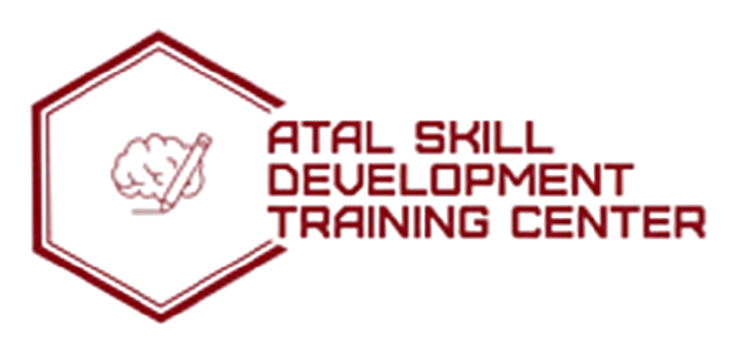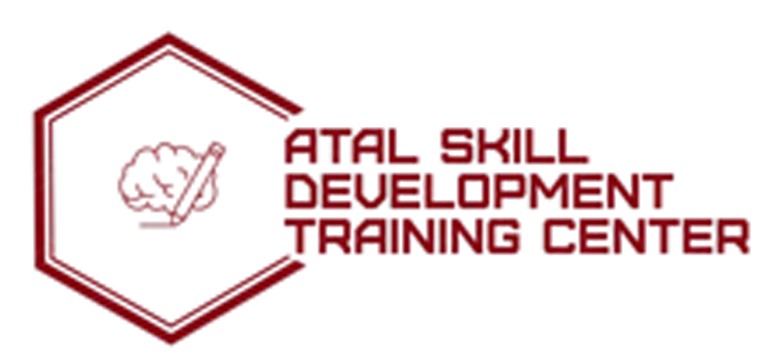Corporate Social Responsibility (CSR) Projects at ASDTC
ASDTC is deeply committed to making a positive social impact and is continuously expanding its Corporate Social Responsibility (CSR) initiatives. These projects are designed to address critical community needs, empower underprivileged sections of society, and promote sustainable development through skills training, education, and employment opportunities.
Our CSR Focus Areas
- Skill Development for Underprivileged Communities
- Objective: To uplift underserved communities by providing free and subsidized skill development training in partnership with government schemes like PMKVY (Pradhan Mantri Kaushal Vikas Yojana) and DDU-GKY (Deen Dayal Upadhyaya Grameen Kaushalya Yojana).
- Target Beneficiaries: Youth from rural and economically backward areas, school dropouts, women, and individuals with disabilities.
- Program Highlights:
- Free vocational training in fields like plumbing, electrician courses, beauty and wellness, hospitality, IT skills, etc.
- Certifications aligned with National Skills Qualifications Framework (NSQF) to increase employability.
- Placement support through collaboration with local industries and employers.
- Women Empowerment Initiatives
- Objective: To bridge the gender gap in the workforce and promote women’s economic independence by providing specialized training and entrepreneurial opportunities.
- Key Projects:
- Women’s Skill Development Centers: Training women in high-demand skills like fashion designing, handicrafts, e-commerce, healthcare services, etc.
- Entrepreneurship Programs: Offering women the resources, guidance, and mentoring to start their own businesses and become leaders in their communities.
- Awareness Campaigns: Conducting workshops on gender equality, women’s rights, and workplace safety to create safer and more inclusive environments.
- Education and Mentorship for Children and Youth
- Objective: To provide access to quality education and mentorship to children from economically disadvantaged backgrounds.
- Key Initiatives:
- After-School Learning Centers: Offering remedial education and extra-curricular activities to improve literacy and holistic development.
- Career Guidance and Mentoring: Providing counseling and career-building workshops to youth, helping them explore diverse career paths, from traditional education to vocational training.
- Scholarships and Financial Aid: Providing scholarships for higher education to deserving students, particularly those from rural and remote areas, ensuring financial barriers do not hinder their dreams.
- Sustainable and Green Initiatives
- Objective: To contribute to environmental sustainability and promote awareness on the importance of a green future.
- Key Projects:
- Tree Plantation Drives: Organizing annual tree plantation campaigns in schools, colleges, and communities to raise awareness on climate change and deforestation.
- Cleanliness and Waste Management: Collaborating with local communities to implement effective waste segregation, recycling programs, and sanitation awareness campaigns.
- Green Energy Solutions: Providing training in renewable energy sources like solar power, biogas, and rainwater harvesting to communities looking to adopt sustainable practices.
- Healthcare & Wellness Programs
- Objective: To provide accessible healthcare and wellness services to marginalized populations.
- Key Initiatives:
- Health Camps: Organizing free health check-up camps in underserved areas, offering services like basic health assessments, eye care, and dental checkups.
- Mental Health Awareness: Providing workshops and training on mental health, stress management, and psychological well-being to reduce stigma and promote holistic health.
- Fitness and Nutrition Programs: Conducting fitness and nutrition programs, especially for young people and the elderly, to promote a healthier lifestyle.
- Disaster Relief and Rehabilitation
- Objective: To provide immediate assistance to communities affected by natural calamities such as floods, earthquakes, and cyclones.
- Key Projects:
- Relief Operations: Mobilizing resources and support to provide food, clothing, and medical supplies to disaster-stricken areas.
- Rehabilitation and Livelihood Support: Offering skills training to help affected populations rebuild their lives and regain financial independence post-disaster.
Key Partnerships for CSR Initiatives
- Government Schemes:
- Partnering with national programs like PMKVY and DDU-GKY to provide government-funded training to the underprivileged.
- Working with local government bodies and organizations to align CSR projects with state and national development goals.
- Non-Governmental Organizations (NGOs):
- Collaborating with NGOs that focus on women’s empowerment, education, and healthcare to expand the reach and effectiveness of our initiatives.
- Co-hosting events, campaigns, and workshops with grassroots-level organizations to foster community participation.
- Corporate Partnerships:
- Engaging with other businesses and corporations to leverage their resources, expertise, and networks for broader community impact.
- Sponsorships and donations to fund specialized programs such as scholarships, health camps, and skills development.
- Educational Institutions:
- Partnering with schools, colleges, and vocational institutes to extend educational and training opportunities to students in need.
- Establishing joint programs for practical internships, career guidance, and industry exposure for students.
Impact of Our CSR Projects
- Empowerment: Providing skills and resources that enable individuals, especially women and youth, to find employment and start their own businesses, creating a positive economic impact.
- Improved Education: Enhancing the quality of education and vocational skills training in underprivileged areas, ensuring better career opportunities.
- Healthier Communities: Providing access to healthcare and wellness resources, fostering stronger, healthier, and more resilient communities.
- Sustainable Future: Promoting environmentally sustainable practices through green initiatives that contribute to a cleaner and healthier planet.
How You Can Get Involved
- Volunteer: Join us in our CSR initiatives by volunteering at events, training sessions, or awareness programs.
- Donate: Contribute financially or provide resources (such as training materials or medical supplies) to support our CSR efforts.
- Partner with Us: If you’re a business, NGO, or educational institution, collaborate with us to amplify the impact of our CSR projects.
At ASDTC, we are driven by our responsibility to give back to society. Through our comprehensive CSR projects, we aim to bring about sustainable change and create a positive future for individuals and communities in need. If you would like to know more about our CSR initiatives or explore partnership opportunities, please reach out to us.



